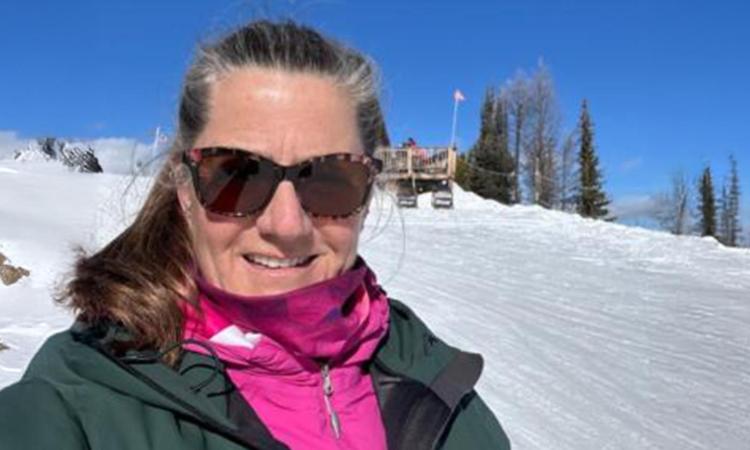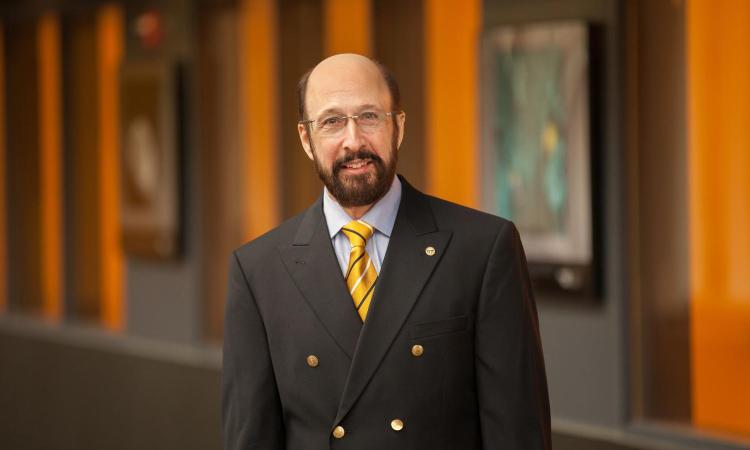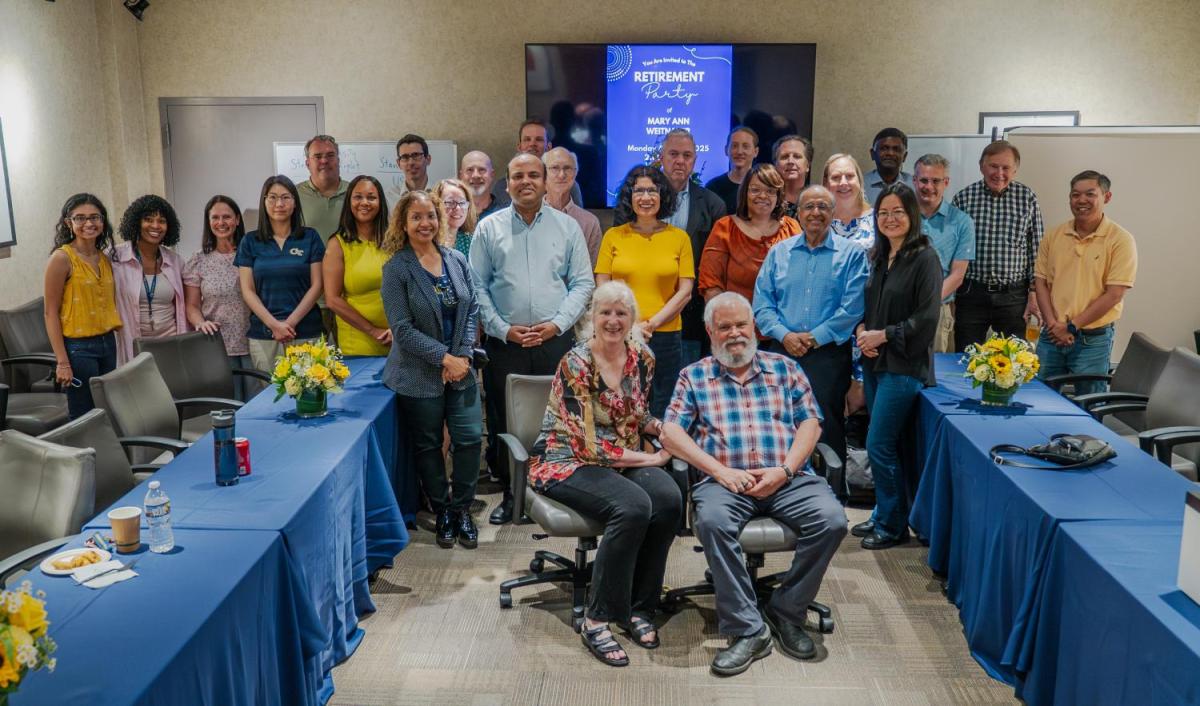
When Mary Ann Weitnauer came to the Georgia Tech campus as a student for the first time, it was the start of a remarkable journey spanning nearly five decades.
From student to faculty member to administrator, it’s been an eventful ride for the life-long Yellow Jacket.
“Georgia Tech has been my home for 48 years, all the while improving itself, in terms of research, teaching, fairness, and openness,” Weitnauer said.
As the professor prepares to retire from the School of Electrical and Computer Engineering (ECE) at the end of the Spring 2025 semester, it’s impossible to capture her experience in just a few highlights.
“Mary Ann has done so much valuable work over the years,” Steve W. Chaddick School Chair of ECE Arijit Raychowdhury said. “She’s established and maintained a new standard in ECE. I congratulate her on her retirement!”
Weitnauer joined the ECE faculty upon finishing her Ph.D. in ECE in 1989, becoming the School’s third female faculty member.
Reflecting on her pioneering role, she recalls, “I was the first ECE female professor to have a baby. When I was obviously pregnant, the chair at the time, Roger Webb, asked me, ‘How’s your project going?’ I started talking about my NSF proposal, but he interrupted, looking at my belly, and said, ‘I mean, that project!’”
The memorable moment was an early highlight in a career that would see her become a productive researcher.
She established the Smart Antenna Research Laboratory (SARL) shortly after joining the faculty, helping her to author or co-author a total of 226 refereed publications and receive 23 patents and invention disclosures.
Weitnauer has made significant contributions to improving wireless communication systems through her work on Multiple-Input Multiple-Output (MIMO) channels and time-frequency features of vehicle-to-vehicle channels.
“While much of my research was on wireless communications, I also enjoyed interdisciplinary projects,” she said. “I had the pleasure to work and learn alongside some unlikely collaborators, including a professor of anatomy and biology, a heart surgeon, and a music composer.”
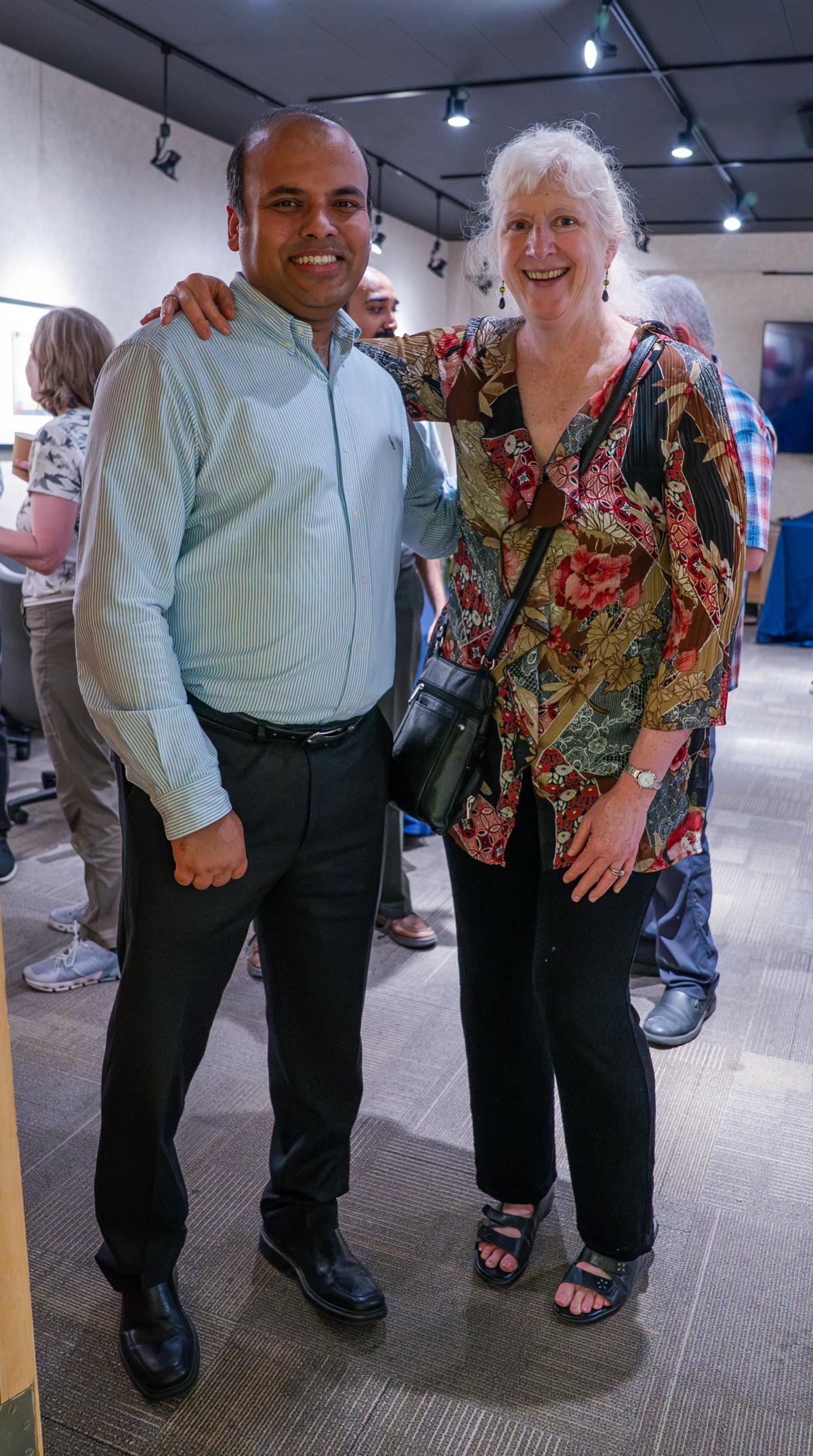
Raychowdhury and Weitnauer at Weitnauer's retirement celebration on April 21.
Her passion for exploration culminated in founding and leading the Electronic ARTrium VIP team. She and a group of students used light detection and ranging, camera-based pose recognition, animatronics, digital storytelling, original music, animated video characters, and lots of two-by-fours, to build two public interactive art exhibits, one in Fall 2022 and the other in Spring 2025. Over 150 students have been part of Weitnauer’s VIP team since 2021.
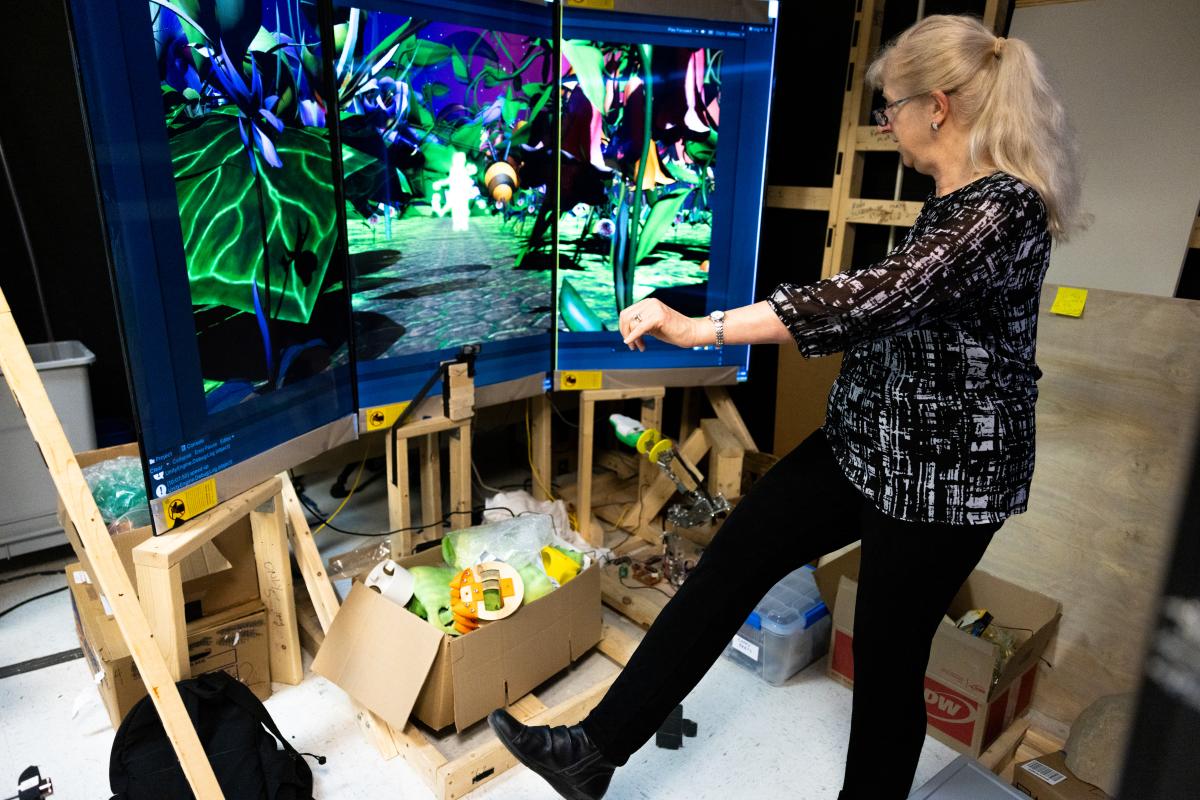
Weitnauer testing portions of an interactive exhibit. The project was part of the Electronic ARTrium VIP team she advised.
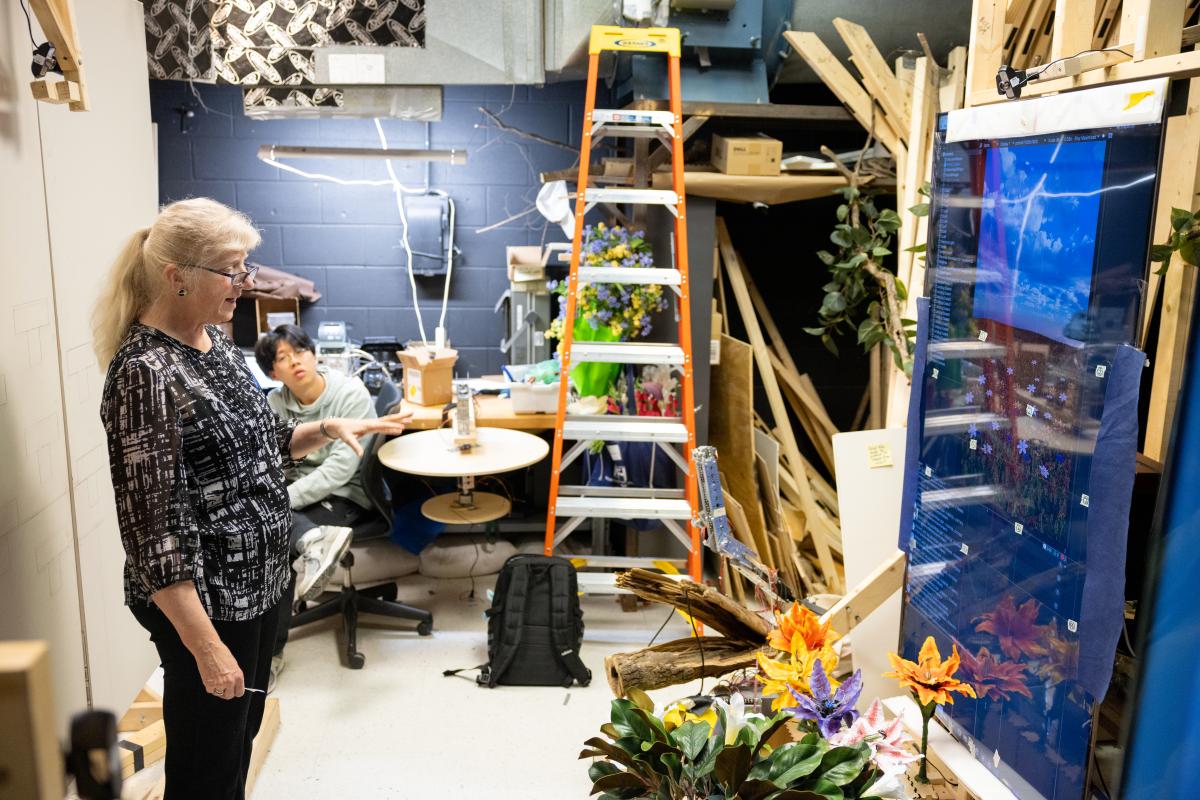
Electronic ARTrium's most recent exhibit combined light detection and ranging (LiDAR), animatronics, digital storytelling, and many other technologies to create an interactive gaming experience.
The project also showcases another passion of Weitnaur's: teaching.
The professor has taught thousands of students during her time in ECE. At the time of her retirement, she’s graduated 31 Ph.D. students, advised 58 master’s research projects, and advised another 57 undergraduate and high school research projects.
“I love seeing ideas click in my students’ heads,” she said. “Some of my proudest moments were when students in my Random Processes and Wireless Communications courses would understand the hard concepts and come back later on to tell me how they used that knowledge in their jobs or research.”
Her time as an administrator for the School was just as impactful, serving as the ECE senior associate chair from 2016 to 2021.
“Some of the most fun experiences I had as an administrator include represented ECE at the Ecocar competition at the General Motors Proving Ground, where I got to test drive all GM’s new cars," Weitnaur said. "I also toured the technology markets in Shenzhen during a visit to Georgia Tech-Shenzhen, and got to sit in the control room of the Panama Canal while visiting Panama for an ECE Advisory Board Meeting,” she said.
She was also the catalyst to spur important change within the School.
Weitnauer improved the classroom and time slot selection process for classes, as well as the advertising of special topic courses, improving the academic experience for students and faculty. She also spearheaded efforts that led to revision of the Create-X capstone course.
(text and background only visible when logged in)
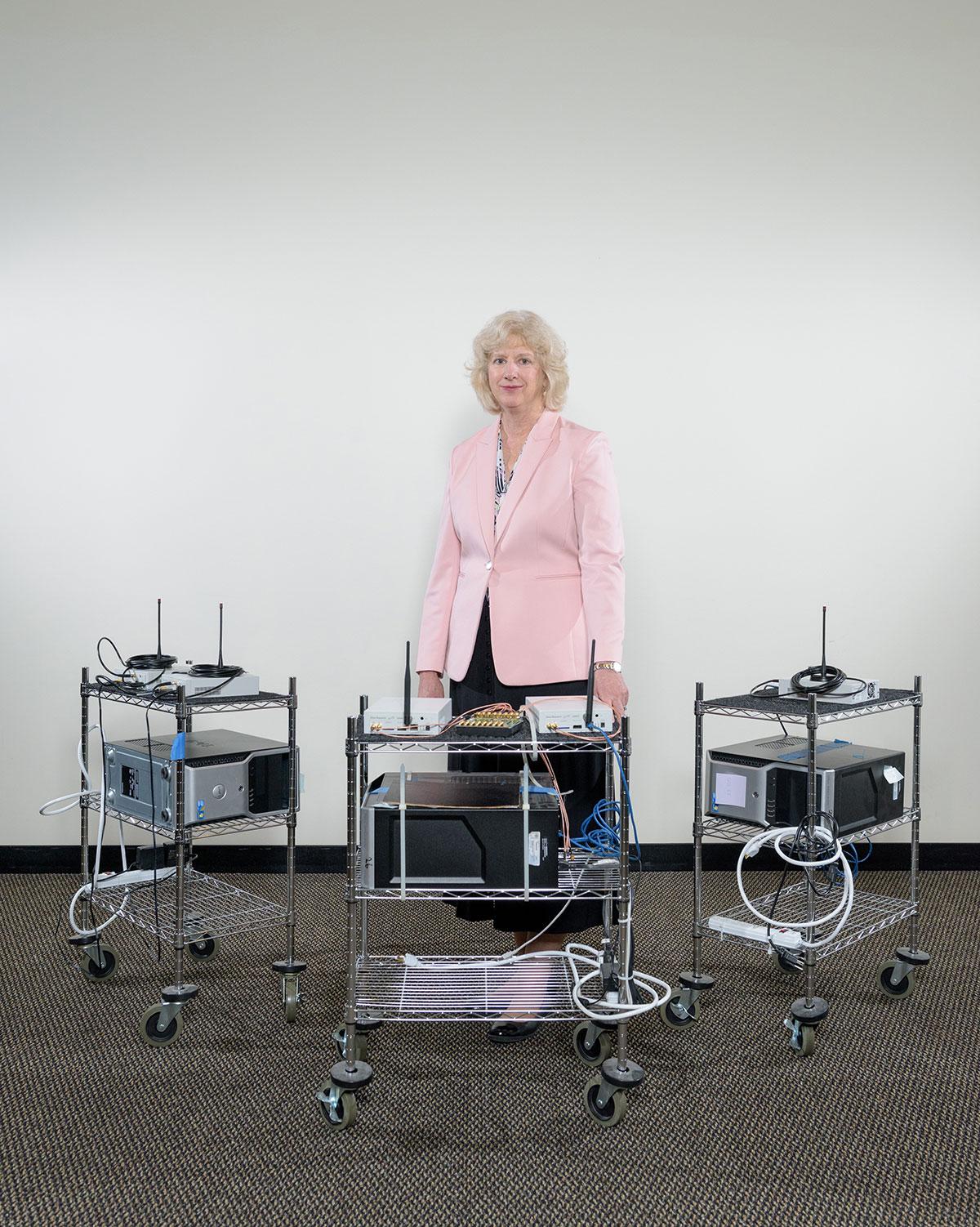
Weitnauer improved wireless communication systems through her work on Multiple-Input Multiple-Output (MIMO) channels.
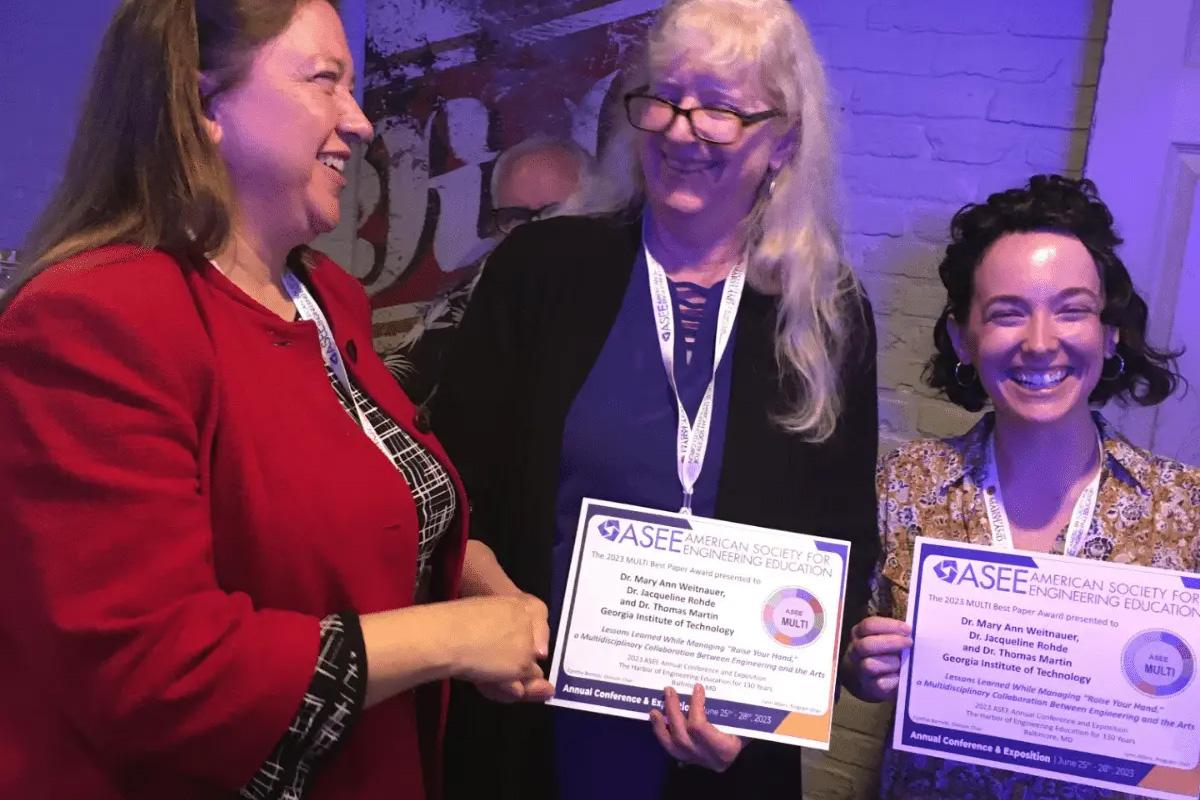
Professor Mary Ann Weitnauer (middle) and ECE assessment coordinator Jacki Rohde (right) receiving a Best Paper Award at the American Society for Engineering and Education (ASEE) Conference.
"I had the good fortune to work with Mary Ann as a research collaborator, a Ph.D. student co-advisor, and on the ECE leadership team,” ECE Professor Doug Blough said. “She approached all these areas with enthusiasm, thoughtfulness, and a sincere concern for the well-being of everyone she interacted with. In her role as senior associate chair, she worked tirelessly to maintain the high standards of our academic programs and created processes for administering the programs that keep them running smoothly to this day."
Her hard work on ECE’s Academic Performance Review—a comprehensive evaluation conducted every six years—contributed to the external review committee proclaiming the School to be a “national jewel.”
Weitnauer has been a constant amongst much change in ECE over the years. She heads into retirement, leaving it better than she found it when she first arrived as an undergraduate student so many years ago.
(text and background only visible when logged in)
Related Content
Exchanging Waves for Wavelets: Meet Leah Clark – This Californian Became the First Female Student to Attend Georgia Tech-Europe.
Leah Clark made history as the first female student to enroll at Georgia Tech’s international off-campus instructional site in Metz, France, joining Georgia Tech-Europe’s 1990 inaugural cohort.
Russell Dupuis Receives Japan Prize for Laying the Foundation for LEDs, Solar Cells, Lasers, and Other Everyday Tech
The highly regarded prize recognizes ECE researcher’s pioneering work enabling mass production of compound semiconductors that fuel our information age.
